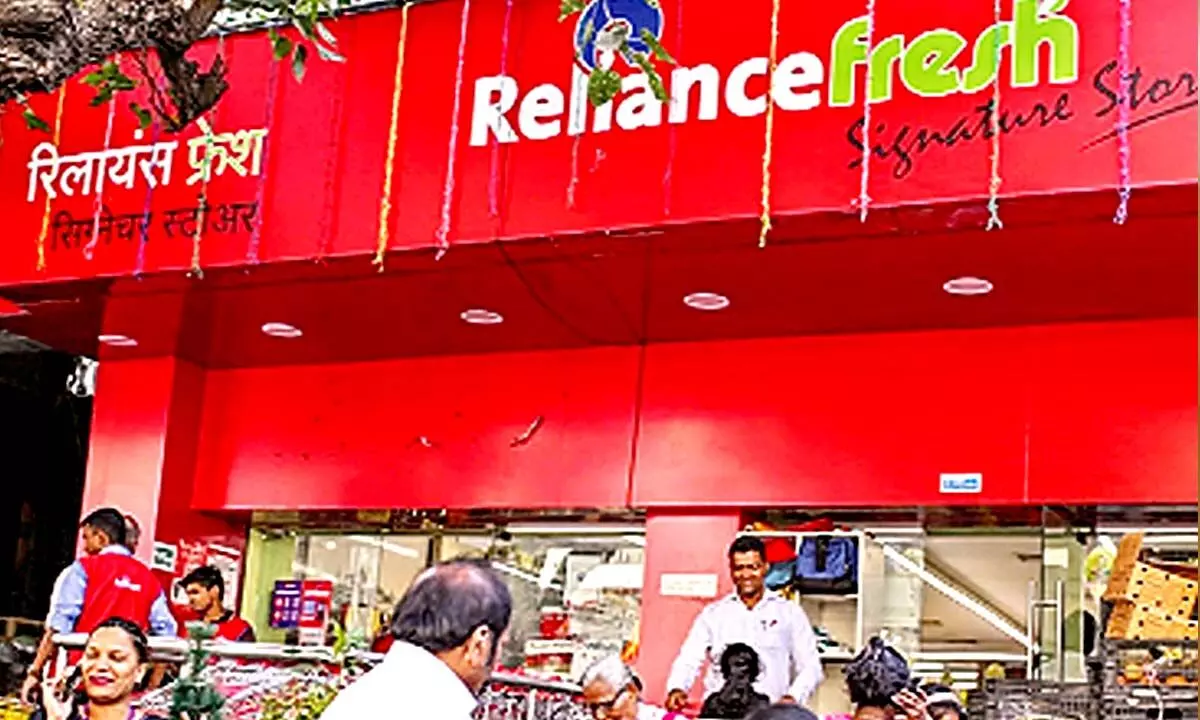How Reliance is building its retail empire
Reliance plans to buyout or enter into partnerships with at least 50 brands in the grocery, household, and personal care space over the next half year
image for illustrative purpose

Well, Reliance has massive ambitions and it doesn't want to wait around for people to recognize its private brands. It wants customers immediately. So for a cash-laden company like itself, the best thing to do is simply buyout other companies. You know, ones where others have already done the hard work of building a brand. And that's what it has in mind
Imagine you've just finished a long day at work and you can't wait to get back home and slurp on some warm comfort food. You head over to your neighbourhood store, hoping to buy a packet of Maggi. And just when you're about to pick up the all too familiar red and yellow packet from the aisle, you notice something.
This isn't Maggi. This is Snactac. And you notice that it's placed right next to the real thing. They look eerily similar and yet they're not. So what is Snactac and who owns it?
Well, the answer may surprise you - Reliance Group. And it's not just Snactac. There's a Coca Cola impersonator too - Yeah! "Yeah" is the name of the fizzy beverage actually.The same red packaging and everything. And if you're wondering if this is all a big coincidence. Well, it's not. These brands are part of Reliance's burgeoning private label business.
You know, the kind where the retail chain makes and markets its own products in stores. And these private label products contribute 14 per cent to the revenues of the grocery segment. In other lines of its business, the private label contribution is even higher. For instance, if you were to look at Reliance Trends, the apparel division, 75 per cent of the revenues in FY21 came from its own private label brands - with reports estimating that the private label business has grown by 38 per cent annually over the past five years.
You can see why it's a pretty nifty way to build a consumer goods business. But here's the thing…building a private label business is still tough. Think about it - hardly anyone knows Snactac or that it's owned by Reliance. People buy it because it's cheaper than its rivals. That's it. People still flock to known brands more often than not. According to Unilever India, 9 out of 10 households in the country are users of at least one of its brands. Getting them to break a habit isn't easy by any stretch of the imagination.
What's the other way out?
Well, Reliance has massive ambitions and it doesn't want to wait around for people to recognize its private brands. It wants customers immediately. So for a cash-laden company like itself, the best thing to do is simply buyout other companies. You know, ones where others have already done the hard work of building a brand. And that's what it has in mind. It is said that Reliance plans to buyout or enter into partnerships with at least 50 brands in the grocery, household, and personal care space over the next half year.
With economic uncertainty looming, inflation remaining stubbornly high, and private capital drying up, Reliance could be using the opportunity to snap up some brands for cheap.
In fact, it has already been on such a buying spree. Over the past couple of years, it has bought out or taken significant stakes in extremely diverse businesses - Hamleys (toys), Justdial (local search), Milkbasket (online groceries), Zivame (lingerie), Netmeds (online pharmacy), Urban Ladder (furniture), Dunzo (instant deliveries), Shri Kannan Departmental Store (grocery chain in Tamil Nadu). It has taken stakes even in high-end fashion brands like Ritu Kumar and Manish Malhotra.
Reliance has seen how D2C (direct to consumer) brands have been able to leverage the power of the internet - in many cases, thanks to Jio - and build a successful niche business for themselves. It's proof that the dominance of the behemoths can be shaken. And it wants to create its own house of brands in this segment.
But bear in mind, this isn't the first time Reliance has decided that it needs to buy out already established brands. Way back in 2009, it tried to unsuccessfully acquire a couple of soap brands manufactured by Henkel India - Aramask and Moloy. If you've raised your eyebrows at these brand names, just know that it was quite popular in Eastern India back then. And if you haven't heard of Henkel, maybe the Pril dishwashing liquid will ring a bell? Anyway, that was 13 years ago. And the plan then was the same - acquire existing customer brands or form joint ventures with these entities. And then reap the benefits of an already solid brand foundation. Unfortunately, it didn't quite work too well for the company back then.
But this time, it seems deadly serious. It has already cemented its spot as the world's second-fastest-growing retailer - after South Korean e-commerce player Coupang. And investors are already excited about Reliance Retail. In the grey market - an unofficial market where shares of unlisted companies can be traded - its share price has zoomed in the past few years. And even if you look at Reliance Industries' stock price, around 40 per cent of its value is estimated to be driven by its retail business. Remember, this is a company that has digital services like Jio and the legacy petrochemicals and refinery business under its belt too.
So if Reliance can execute its consumer goods ambitions, we may stop referring to it as an oil and gas company or a telecom behemoth - instead, we'll probably be calling it a retail company! Wouldn't that be something?

